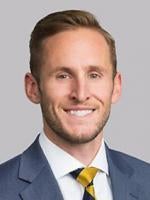On October 5, 2022, the Office of Inspector General (“OIG”) posted Advisory Opinion No. 22-19 (the “Opinion”), which limits the ability of pharmaceutical manufacturers to offer cost-sharing subsidies to Medicare Part D (“Part D”) beneficiaries via 501(c)(3) charities without running afoul of the Federal Anti-Kickback Statute (the “AKS”).
In the Opinion, OIG determined that a proposed arrangement under which pharmaceutical manufacturers would: (i) fund, through Requestor,[1] cost-sharing subsidies for the manufacturers’ own oncology drugs that are covered by Part D; (ii) fund, through Requestor, specified programs and eligible beneficiaries’ health insurance premiums; and (iii) finance Requestor’s operating costs, would violate the AKS if the requisite intent were present but would not trigger the Beneficiary Inducements Civil Monetary Penalty (“CMP”).
Statutes in Question
The AKS makes it a criminal offense to knowingly and willfully offer, pay, solicit, or receive any remuneration to any person to induce such person to purchase or arrange for any item or service reimbursable under a Federal health care program.[2] For purposes of the AKS, “remuneration” includes the transfer of anything of value, directly or indirectly, overtly or covertly, in cash or in kind. An arrangement that fits within the AKS may be exempt from liability if the arrangement fits within one of the safe harbor regulations or if OIG determines that the arrangement presents only a minimal risk of fraud, in which case the agency can exercise its enforcement discretion and decline to impose sanctions.
On the civil side, the Beneficiary Inducements CMP imposes civil monetary penalties against any person who offers or transfers remuneration to the beneficiary of a federal or state health care program that the person knows or should know is likely to influence the beneficiary’s selection of a particular provider, practitioner, or supplier.[3]
Cost-Sharing Subsidies Pose Highest Risk
After concluding that the arrangement would implicate the AKS and would not fit within a safe harbor regulation, OIG determined that, of all three components of the proposed arrangement, the pharmaceutical manufacturers’ provision of cost-sharing subsidies to Part D patients poses the highest risk of fraud. Therefore, OIG concluded, it would be improper for OIG to exercise its enforcement discretion, despite the fact that many Part D beneficiaries are not able to afford oncology drugs as currently priced.
First, OIG asserted that the arrangement constitutes circumvention of the Part D design contemplated and implemented by Congress, and that it poses a risk of inappropriately increased costs to federal healthcare programs. Significantly, the proposed arrangement between Requestor and all of the pharmaceutical manufacturers would represent an overwhelming market share of ninety percent (90%) of Part D oncology drugs. By replacing current Part D cost-sharing obligations with the manufacturers’ cost-sharing subsidies for such a large portion of Part D oncology products on the market, OIG reasoned that manufacturers would effectively be replacing the statutory framework implemented by Congress and, therefore, circumventing the legislative process. Additionally, OIG asserted that the proposed arrangement poses a risk of inflated healthcare costs because it would remove one of the key pricing controls of the current statutory framework – exposing beneficiaries to the economic effects of drug prices set by manufacturers. Because Part D beneficiaries are exposed, by statutory design, to the going price of a certain drug, drug manufacturers are incentivized to keep costs low in order to compete. But OIG stated that if these manufacturers offer significant cost-sharing subsidies, beneficiaries would continue to purchase the drugs, with manufacturer-inflated prices, while federal health programs and, ultimately, taxpayers bear the burden.
Second, OIG asserted that the arrangement poses a risk of patient-steering, anti-competitive effect, and skewed clinical decision-making. Specifically, OIG argued that the proposed arrangement carries the anti-competitive risk of penalizing manufacturers who do not participate because Part D patients would likely be steered away from their products in favor of subsidized products offered under the proposed arrangement. Additionally, OIG underscored that prescribers could be dissuaded from prescribing a drug from a non-participating manufacturer in favor of a subsidized drug offered under the proposed arrangement, even if not in the patient’s best interest.
However, OIG found that the proposed arrangement would not violate the Beneficiary Inducements CMP because, although the proposed subsidies are certainly intended to induce Part D beneficiaries to purchase the oncology products offered under the arrangement, cost-sharing subsidies would be offered to beneficiaries based on the choice of drug, not the choice of “provider, practitioner, or supplier.”
Enforcement Trend
The Opinion extends the close scrutiny given to drug manufacturers’ cost-sharing subsidies by clarifying previous OIG bulletins and mirroring current enforcement trends, especially utilization of 501(c)(3) charities to fund patients’ Part D cost-sharing obligations. Readers will recall that, over the past four years, the pharmaceutical industry has provided over $1.5 billion in total DOJ settlements over funding of charities that provide Part D copay support for patients.[4]
The Opinion clarifies and expands upon a 2005 OIG Bulletin, which acknowledged the possibility of a “coalition model” to increase accessibility to expensive drugs for financially-needy Part D beneficiaries.[5] Although the 2005 Bulletin discussed several safeguards that might limit the risk of AKS liability for coalition models, such as manufacturers offering subsidies for all of their products covered by any Plan D formulary, OIG ultimately concluded that, as of 2005, it was “premature to offer definitive guidance on these evolving programs.” Subsequently, in a 2014 Bulletin, OIG highlighted the risk that “the ability to subsidize copayments for their own products may encourage manufacturers to increase prices, potentially at additional cost to Federal health care programs and beneficiaries who are unable to obtain copayment support.”[6]
Additionally, the Opinion encompasses the reasoning utilized by the Second Circuit this summer, when a three-judge panel ruled that Pfizer’s plan to provide copay assistance to Plan D beneficiaries for a costly heart medication would, indeed, violate the AKS.[7]
Takeaways
The crux of the Opinion focuses on the direct tie between placement of funds with Requestor and the direct pass-through of those funds to patients to cover Part D cost-sharing obligations for the manufacturers’ own products. OIG found that Requestor’s plan to utilize an independent, third-party “Administrator” to operationalize the scheme and to set up and run a wraparound compliance program were not sufficient to offset the risk of fraud. OIG was equally unpersuaded by the fact that there would be little, if any, communication or advertisement of the proposed arrangement, or that data exchange between manufacturers and the Administrator would be highly limited. Requestor clearly considered the compliance infrastructures that sprang up in the wake of the Department of Justice’s (“DOJ’s”) enforcement of manufacturer-funded Part D copay foundations. However, the aforementioned safeguards were not enough to alleviate OIG’s concerns. Despite having an independent third-party (i.e., the Administrator) sitting between the manufacturer and the patient, OIG still found that the proposed arrangement raised concerns from the perspectives of inappropriate utilization, skewed decision-making and unfair competition.
Even amid the current push for health equity among executive agencies, OIG has indicated that it will stop short of relaxing AKS enforcement as a means to increase access to costly drugs for Plan D beneficiaries. Given the volume of AKS fraud that has overwhelmed the system in the wake of the pandemic, we will likely see OIG continue to push on AKS enforcement with respect to drug manufacturers.
FOOTNOTES
[1] Requestor is a 501(c)(3) healthcare corporation, whose operations would be funded entirely by the pharmaceutical manufacturers. However, OIG noted that Requestor Board members would not be employees, directors or officers of a manufacturer, and moreover, that such members would not have any financial relationships with a manufacturer.
[2] 42 U.S.C. § 1320a–7b(b).
[3] 42 U.S.C. § 1320a–7a(a)(5).
[4] See DOJ Journal of Federal Law and Practice, Vol. 70, No. 3 (Aug. 2022) at p. 42.
[5] See 2005 Bulletin, 70 Fed. Reg. at 70627.
[6] See 2014 Bulletin, 79 Fed. Reg. at 31112.
[7] See Pfizer, Inc. v. United State Department of Health and Human Services et al., case no. 21-2764 (2d Cir. 2022).




 />i
/>i

